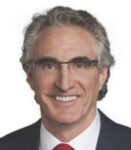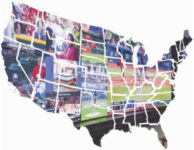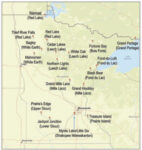
The Sycuan Institute on Tribal Gaming is dedicated to producing research that is responsive to ongoing tribal public policy needs while also launching a new body of work analyzing tribal casino operations management practices.
Because tribal gaming revenues are directed toward improving tribes’ social and economic welfare, it is critical for tribal budgets that tribal casinos are operated with maximum efficiency. Any dollar wasted on flawed marketing strategies, for example, is a dollar that could have been invested in tribal scholarships, health care or housing.
Consistent with the requirements of the Indian Gaming Regulatory Act, tribal governments are investing gaming revenues into a variety of tribal programs and services (health, law enforcement and education, to name a few) and promoting economic diversification, among other endeavors. As such, inefficient or wasteful tribal casino management, whether a result of ignorance or apathy, impacts tribal lives directly.
The net gaming revenues available for tribal government investment vary considerably across the United States. Tribal government gaming facilities closer to larger gaming markets logically produce more revenues for investment and recovery.
Until recently, most research directed at tribal economic and social recovery from gaming has focused on tribal governments’ uses of revenues after they have been transferred to the tribal government. However, tribal casino management and marketing practices also play a significant role in how much money ultimately flows to tribal communities.
One of the biggest investments by tribal casinos, free play, is a meaningful place to start evaluating casino performance.
Free-play (FP) awards have been established as a critical and costly play incentive in most U.S. casinos, and tribal government casino marketing reflects that trend largely through the long-term practice of importing casino executives from existing markets. In spite of their industry-wide popularity and the considerable cost of these offers, however, little is known about their effect on customer behavior, especially in tribal government-owned gaming facilities.
The Sycuan Institute recently funded and completed an analysis of the differential impacts of discretionary FP (DFP) and earned FP (EFP) in two tribal properties as a way to test the assumption that free-play offers will stimulate increased spend per trip. Specifically, tribal casino marketers must know whether and to what extent FP redeemers gamble with their own bankroll.
Two tribal gaming properties, named Resort A and Resort B to protect their identities, shared detailed marketing data to allow for our analysis. Like many casinos, these properties relied heavily upon slot revenues and operated in competitive markets where other properties were offering similar FP programs.
The model used for analysis was originally developed to analyze FP performance in non-tribal properties and had consistently revealed that FP generally underperformed relative to the assumptions of management. Importantly, the tribal property called Resort B shows outstanding performance on FP relative to all other properties tested to date, demonstrating that FP can perform as intended if it is tailored to the market.
(The full results of the study are available from the authors and will be published in an academic journal in 2016.)
For Resort A, one dollar increase in DFP resulted in a $11.75 increase in coin-in. EFP also produced a positive and statistically significant effect at Resort A. Resort B also showed a positive result.
At first blush, these results suggest that the free-play program is a huge success. However, once the costs associated with implementing the DFP program are considered, the resulting analysis of Resort A’s success suggests that the incremental win (i.e., revenue) associated with DFP redemption is insufficient to cover the offer costs.
Computing the incremental revenue associated with DFP redemption demonstrates that Resort A had to invest $1 in DFP to produce an incremental win of 88 cents. This suggests that for every one dollar of DFP redeemed in Resort A, management can expect to see an 880cent -increase in carded win, the equivalent of exchanging $1 for $0.88.
Additionally, there are many other operating and LP program costs to cover, aside from the direct offer costs. This result for Resort A suggests that management should to take a critical look at the DFP program. (It certainly does not mean that DFP is not a viable option for the LP, it simply suggests that revisions to the offer process should be seriously considered.)
For Resort B, a $1 increase in DFP resulted in a $24.27 increase in coin-in, which ultimately translated into $1.64 of incremental win. That is, for every FP dollar redeemed in Resort B, management can expect to see a $1.64 increase in carded win.
Although much more favorable than Resort A’s result, again, there are other operating and LP costs to cover. Still, this outcome is more encouraging with respect to the efficacy of Resort B’s current DFP program. While differences in resort-level results are to be expected, it is worth noting that Resort B’s investment level in DFP appears lower than that of Resort A. For example, Resort B redeemed 9 percent of its theoretical win in DFP, while Resort A redeemed 11.7 percent of its theoretical win in DFP. While this correlation does not provide a definitive explanation, Resort B’s superior result could be due in part to a more restrictive DFP offer protocol, indicating that less may be more.










